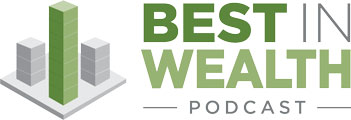022 – 5 Signs You Are Ready to Retire Early
How do you know if you’re ready to retire early? Wouldn’t you like to know? There are many people that may be able to retire early but don’t know it. They just assume that they will be working until or past normal retirement age. Come on a journey with me and listen to the podcast today to discover if you are on track for an early retirement. 5 Signs to Tell if You Are Ready to Retire
5 Signs You Are Ready to Retire Early
Early retirement sounds pretty good when you’re stuck in a cubicle counting down the hours until the weekend. If you don’t enjoy your job anymore and are looking forward to spending more time pursuing your own agenda, early retirement can be ideal. The challenge is that you need to save up for it and make that money last for several decades. Here are the financial milestones you should achieve before taking early retirement:
You have retirement cash flow
You need to calculate how much income you will have after leaving your job. Social Security benefits typically can’t be started until age 62 at the earliest. If you retire before that, you will need income from somewhere else. You can withdraw from your 401(k) or Roth IRA, but you need to decide how much to withdraw per year and make sure you don’t deplete your retirement fund too quickly. Get into the habit of tracking your cash flow while you’re working, and practice living on your retirement budget for 12 months. It’s even more important to control your spending in retirement because you’ll have a fixed income. Monitoring your spending will allow you to understand where your money is going and help control lifestyle inflation as the years go by.
You know how your expenses will change
Certain expenses can be eliminated when you retire such as commuting costs. But some retirees end up spending more money annually after they quit working. Many people want to travel now that they have the time, and that will significantly increase your expenses unless you travel creatively. Other people spend money on hobbies they have been putting off for many years. A retirement budget needs to take into account all the activities that you would like to do as well as the usual bills. You have retirement health insurance Medicare won’t kick in until you’re 65, and you’ll need to fund your own healthcare until then. You can keep your employer-sponsored health insurance for up to 18 months under COBRA, but you will probably have to pay a lot more than you used to while working. If your spouse is still working, then it’s usually a much more affordable option to get coverage through his or her employer. The Affordable Care Act provides another option for early retirees, and you can shop for health insurance at your state’s health insurance exchange. After retirement, your income will probably be lower, so you might qualify for tax credits to help cover the premiums. However, health insurance isn’t cheap, and you might get sticker shock if you don’t do your research before retiring.
You have no debt
If you have consumer debt, then you’re probably not ready to retire early. It’s also a good idea to pay off your mortgage before retirement so your monthly expenses will be reduced. Downsizing or relocating to a more affordable area can be a good option to reduce or get rid of a mortgage.
You have adjusted your portfolio
You need to make sure your asset allocation is properly targeted to meet your risk tolerance. Some early retirees have all their assets in stocks. That might be fine when you’re still working because you can add money when the market is down. But that asset allocation probably needs to be adjusted after retirement. An early retiree also needs to be careful not to shift too much money into bonds because you need stocks for growth. When you’re nearing retirement, reassess your risk tolerance and update your asset allocation accordingly.
You have achieved financial freedom
One way to estimate if you’re ready for early retirement is to divide your investable assets by your annual expense. I call this the financial freedom ratio. If your financial freedom ratio is above 25, then you’re in pretty good shape. You can use the 4 percent rule to withdraw from your portfolio, and chances are good that your money will last for 30 years or more. Of course, if you retire very early, then you probably need to be a bit more conservative and withdraw less until you’re near 65, the normal retirement age. One way to estimate if you’re ready for early retirement is to divide your investable assets by your annual expense. I call this the financial freedom ratio. If your financial freedom ratio is above 25, then you’re in pretty good shape. You can use the 4 percent rule to withdraw from your portfolio, and chances are good that your money will last for 30 years or more. Of course, if you retire very early, then you probably need to be a bit more conservative and withdraw less until you’re near 65, the normal retirement age. If you have a healthy portfolio balance, no debt and a plan to deal with health care, then you might be ready to retire early. Try tracking your cash flow and living on your retirement budget for a while before pulling the plug. Once you retire, then you need to keep a good handle on your cash flow to make sure you don’t overspend. Early retirement is a dream for many people, but it takes diligent saving and careful planning to make it real. -Via Joe Udo



